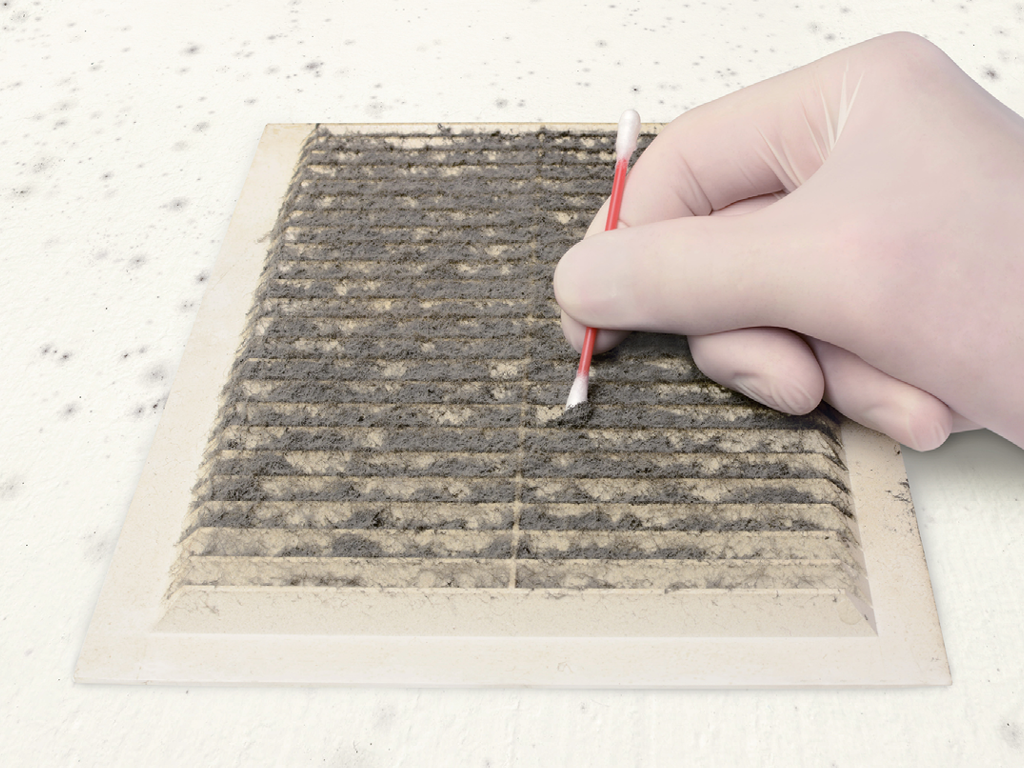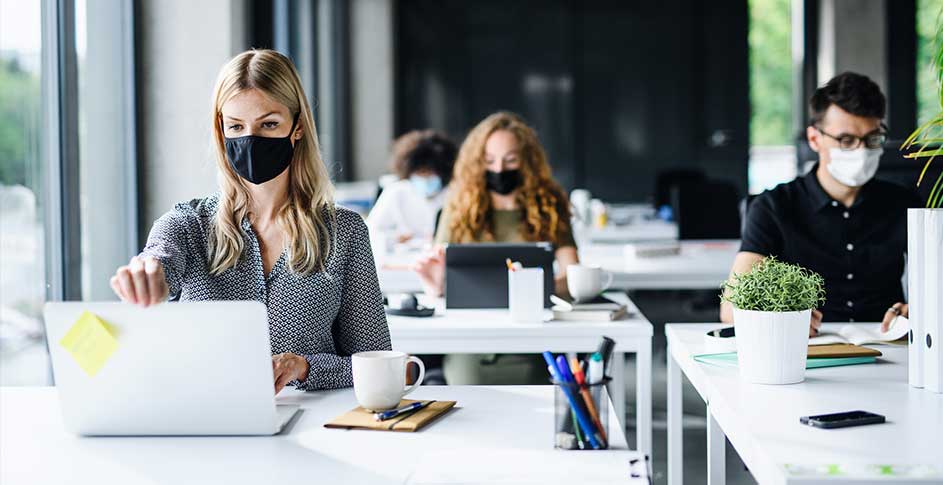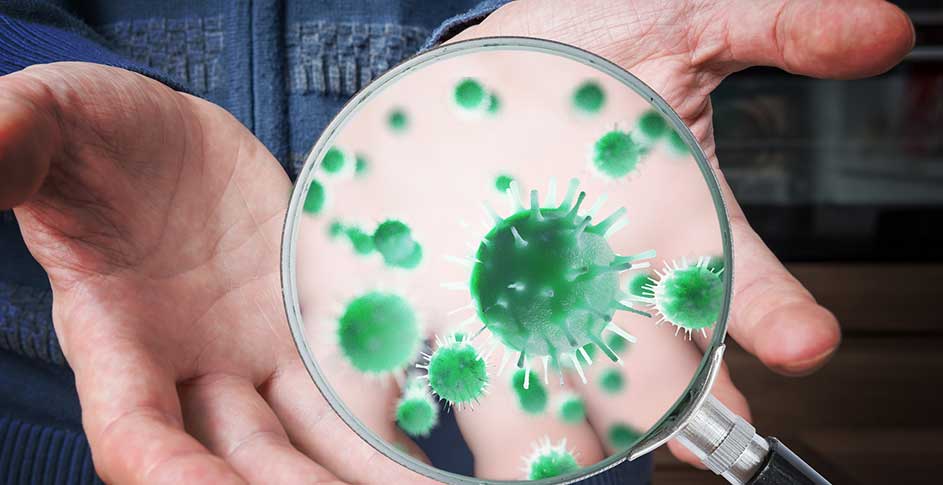Looking back on 2022 (and beyond), there’s one hopeful theme woven throughout all our research: indoor air quality will get better.
However, while our ability to improve indoor air quality is increasing, so are the pressures that can make indoor air quality (IAQ) worse.
To explain both sides of this equation, here are our top 7 predictions for the future of indoor air quality.
1. Outdoor Air Pollution Will Get Worse, and This Will Affect IAQ
Likelihood: High
The United Nations projects that 68% of the world will live in cities by 2050. This means more people will live near sources of outdoor pollution such as airports, roadways, and factories. Meanwhile, climate change increases the frequency of droughts and wildfires, which further reduce outdoor air quality.
Well-sealed buildings may keep these contaminants outdoors, but only at the expense of increasing carbon dioxide, VOCs, bacteria, and viruses inside. Meanwhile, buildings with sufficient ventilation let pollution in with ease. As discussed in our article on infrastructure solutions, the solution to this dilemma is a balance of energy-saving ventilation technology and active air purification.
2. COVID-19 Isn’t Going Anywhere
Likelihood: High
Because natural human immunity wanes and coronaviruses mutate, we will never see an end to COVID-19. As in the case of flus and colds, some COVID waves will be severe, and some will be minor. There is a faint, future hope that humanity will invent a new type of vaccine which protects against all variants, but it is much more likely that we will change our infrastructure to accommodate COVID-19’s endemic nature.
3. The Federal Government Will Establish Indoor Air Quality Standards
Likelihood: Low
Per an article on the future of indoor air quality in Vox:
In the US, the EPA doesn’t regulate indoor air, and there’s no federal standard for indoor air quality. That means there’s no minimum for building managers to strive for, and no way for inhabitants to know what’s in the air they’re breathing.
The federal government does encourage certain indoor air quality standards (for instance, through the Clean Air in Buildings Challenge), but it does not regulate indoor air in the same way as outdoor air. As more people become cognizant of indoor air, we predict that constituents will push for regulation. Some companies—not realizing that increased air quality is in their best financial interest—may push against such regulations. However, companies may also begin voluntarily evaluating their own indoor air in such a way that federal guidance is not necessary. Time will tell.
4. The Federal Government May Continue to Fund IAQ Improvements
Likelihood: Low
As we’ve discussed in previous blogs, the federal government is currently providing an unprecedented amount of funding (nearly a half trillion dollars) to states, territories, and tribal governments for COVID-19-related improvements. These funds are to be distributed to schools, businesses, and nonprofits throughout the country.
While the federal government is unlikely to release another half trillion dollars, it may continue to provide funding for air quality improvements on a lesser scale, especially to poorer school districts. At the very least, future funding (whether in the form of loans or grants) will be more regularly available than it was before COVID-19.
5. Organizational IAQ Policies Will Become the Norm
Likelihood: Medium
When the pandemic hit, most organizations demonstrated an impressive ability to rapidly assemble a COVID-19 safety plan. Now that we know how COVID-19 spreads through the air, many organizations will use this expertise to regulate their own air quality. Such policies are often beneficial in terms of both peace of mind and profit.
Improved indoor air quality policy is also intricately tied to sustainability. Certain improvements in indoor air quality can increase energy costs while the right improvements can decrease costs. Thus, many organizations will also build or rent spaces that have green building certifications, such as LEED.
6. Active Air Treatment Will Become a Standard Utility
Likelihood: High
As we discussed in our most recent blog on COVID waves:
Experts are now certain that COVID-19 primarily spreads via indoor air. They also know that the so-called “droplet dogma,” (i.e., that respiratory illness only spread through large droplets limited to 6 feet around an infected individual) is incorrect. SARS-CoV-2 can spread through small aerosols which travel across the room and hang in the air for hours.
As researchers find more evidence of illnesses spreading via aerosols, indoor air treatment will become as standard as indoor water treatment, something first predicted by Dr. Alondra Nelson in a White House webinar.
There is an important caveat to this prediction, however. As environmentalist engineer Ian Cull describes to Architect Magazine:
“[...]if I sneeze, the chances of this aerosol hitting you are much greater than [the] likelihood of it getting into the HVAC system first and through the air sterilizing mechanism before you take your next breath.”
Thus, any indoor air treatment must actively address contaminants in occupied rooms—not passively clean circulated air as it passes through a mechanism.
7. Everyone Will Insist on Better Indoor Air
Likelihood: High
These predictions depend on one overarching prediction—that better-educated consumers, constituents, employees, owners, and managers will insist upon improvements in IAQ. As Vox summarizes:
Research [has] accumulated linking indoor air pollution to worse cardiovascular disease; cognitive decline in older adults; higher rates of chronic respiratory diseases, lung infections, and cancers; and infectious diseases including measles, tuberculosis, chickenpox, influenza, and SARS.
COVID-19 was the catalyst which allowed this research to begin percolating through the public consciousness. Thus, the days of toleration for poor indoor air are finally at an end.
That being said, even the most robust and flexible organizations can use IAQ expertise. To obtain assistance improving your organization's indoor air quality, contact us today.



